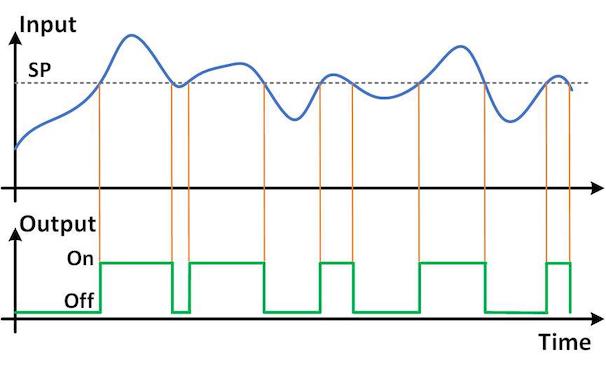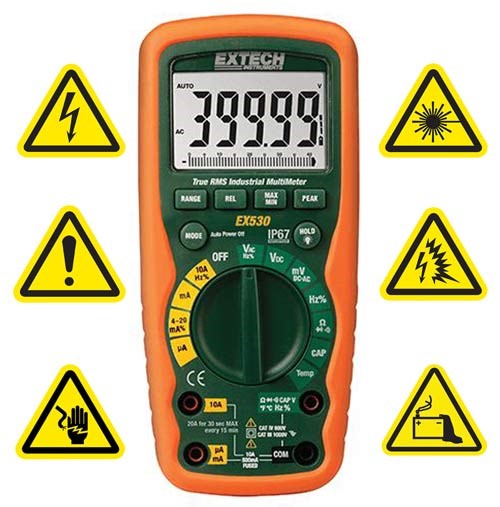Many digital meters provide relay outputs to activate external alarms or controls. Two parameters, setpoint and hysteresis, are used to configure these outputs. The setpoint is a predetermined level, within the range of the meter, where a protective or control action is initiated. (more...)





